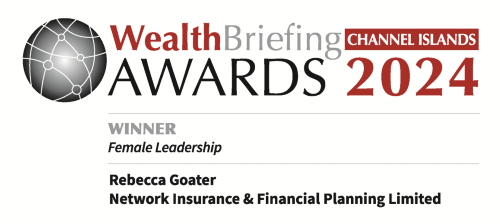
Why long-term investing still matters — even when cash looks attractive
It’s been a funny few years, hasn’t it? And by funny, I mean funny peculiar, as it hasn’t been funny ha ha very much.
In the last five years, we’ve had Covid, a war in Europe (and whilst any war is abhorrent; the proximity of this one has meant its impacts have been felt stronger here), soaring inflation, aggressively increasing interest rates, and Trump’s arrival in the White House for the second time leading to a potential global trade war, to name just a few.
When my children (or potential future grandchildren) are doing their History GCSE, it’s conceivable that quite a bit of the 2020s will feature in the syllabus! Crazy.
What is interesting is that a lot of the above has impacted most people in their daily life; Covid is an obvious one, but rising living costs have been felt by the masses. And interest rates leading to higher mortgage payments has not been the most fun, particularly after over a decade of historically low interest rates.
But in addition to this, it has also been a bit of a rollercoaster for the investment markets. And 2022 was one of only a handful of years in history where both equities and bonds ended the year in negative territory, as the two asset types often move in opposite directions, meaning they are ordinarily good diversifiers.
This, coupled with higher interest rates available on cash savings than we’d been used to (for a while at least), and it’s not surprising that I had a lot of clients asking me why they should invest, and not just stay in cash, with many thinking that cash was actually looking like a better investment, even over the long term.
Firstly, I think it would be useful to try to explain why we expect other investments to outperform cash (over the long term), and really it all comes back to risk vs return, and the fact that in order for anyone to take a risk (investment or in everyday life), the return on the risk has to be worthwhile. Otherwise, why would anyone take the risk?
So, to explore this further, the interest base rate, which impacts the interest available in a bank account, simply demonstrates what is achievable from taking very little risk. At the time of writing this, the Bank of England base rate is 4.25%, so if we can get 4.25% (or somewhere close to it) simply from holding funds in a bank account, anyone with any sense would need a higher level of return to invest in anything else, or else why take a higher risk level? Therefore, government bonds (generally seen as the next lowest risked investment, depending upon the country, of course), are going to need to pay a higher interest rate than what you can get from your bank, or they’ll not have anyone offering to buy them. And countries always need to borrow money - they’ve got countries to run.
Following on from this, companies also need to borrow money, for a number of reasons, and they therefore have to offer higher rates again on corporate bonds in order to persuade people to lend them money – thereby increasing the return, given the risk is higher. The riskier a company is perceived to be, the higher the interest rate they have to pay, much like with any lending arrangement.
And then this leads us to equities – when companies want people to invest into them for an ownership stake, which is generally considered a higher risk, as lenders will be repaid first before investors (and interest is generally agreed and promised, whereas profit distributions are not). So, companies simply have to be able to deliver greater returns to their investors, or else they wouldn’t have anyone willing to risk investing.
Depending on their levels of borrowing and equity investment, and the rates of return expected by various stakeholders, a company will have a weighted average cost of capital (WACC) — essentially, the average return it must generate from its operations to satisfy both lenders and investors. This acts as a benchmark the company knows it must meet or exceed, and a company will understand that it does have to deliver this.
So, basically, cash sets the bar, and other assets must deliver over this bar, at least over the long term.
This isn’t necessarily the case in the short term, as the investments can be volatile, and impacted by many short-term events. However, historically, over the long term, the riskier investments have always provided better returns than lower risked investments, and, cash.
Indeed, historically over the long term, cash has delivered losses in real term, meaning, after the impact of inflation is considered, the real value of the cash held as decreased. In other words, its buying power decreases over time.
The below chart[1] demonstrates both of my points quite well over the last 15 years. Not only has a “balanced” (medium risk) investment outperformed cash, as we would expect, but it has also grown ahead of inflation (Consumer Price Index), meaning the real value of the investment has increased. Conversely, over the period, cash has provided returns far below inflation.

[1] Taken from FE Analytics
So, what do we need to take from this?
Well, despite the cash rates at the moment, if you have a long time period, it is expected that your cash will lose value in real terms.
This means that depending upon your own personal circumstances, and in particular, your timescale of the investment, you may want to consider taking some risk, in order to achieve better (and hopefully real) returns over the long term. And hopefully, this article may have helped you understand why that is the case.
Even for those who can and do want to invest, it is always important to retain some funds in cash (or cash equivalents) in order to be able to fund short term or unexpected capital requirements without having to access investments at what may be an unsuitable time (when the markets are down). Therefore, a balanced approach, combining both cash for short-term needs and investments for long-term growth, is often the most prudent strategy for many individuals.
As noted, there is not one size fits all answer here, so please do contact a financial adviser to discuss the options accordingly before making any decisions.
If you would like to discuss this further with a qualified financial adviser, please get in touch with Network Financial Planning on 01481 701400 or at advice@network.gg for a free initial review to discuss your personal circumstances.
I want to retire… but can I afford to?
Retirement used to be simple. Work until 60 or 65, then enjoy a steady income from a company pension. Today, retirement is far less predictable, and planning ahead has never been more important.
Underinsurance: The hidden risk facing homeowners
It’s estimated that more than half of home insurance policyholders are underinsured — a hidden risk that could result in serious financial loss if disaster strikes.
Financial advisers: the GPs of your financial health
Director and financial adviser, Bex Goater, explains why you should treat your finances like your health.
Top 10 insurance myths - busted by a broker
Insurance can be complex, and when it's misunderstood, the consequences can be significant. Here, Network's managing director, Ollie Goater, gets to the bottom of all things insurance.
We’d love to stay in touch and keep you up to date with the very best insurance and financial planning advice

